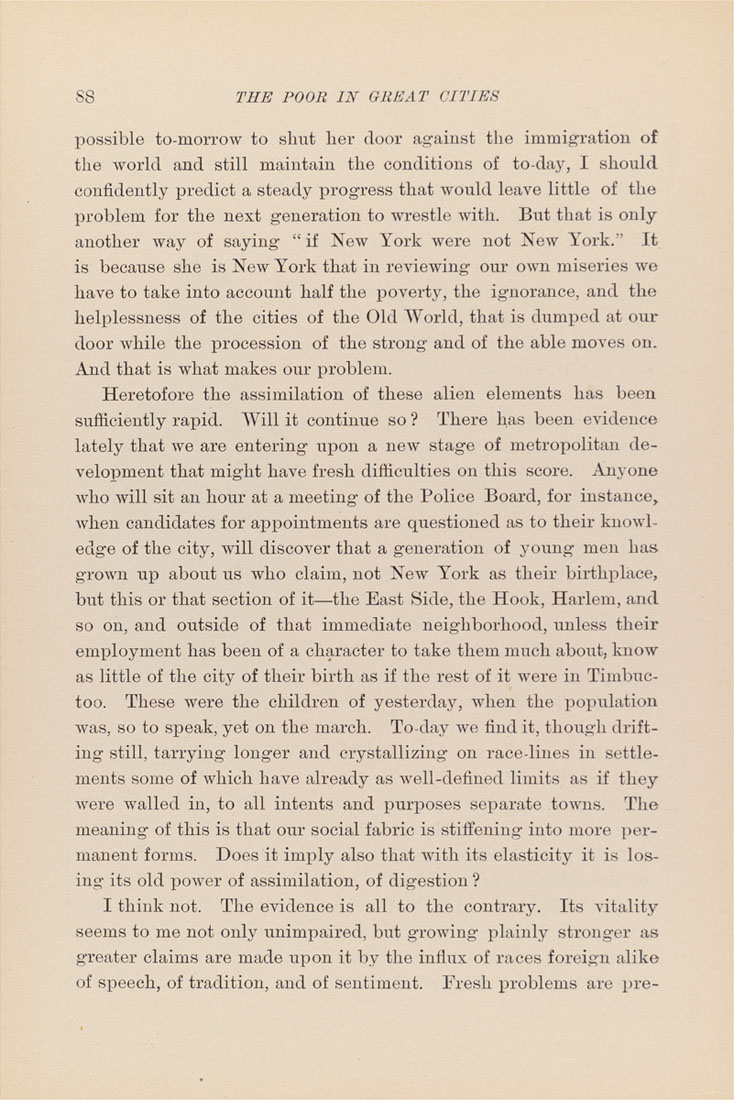88 THE POOR IN GREAT CITIES
possible to-morroAV to shut her door against the immigration of
the world and still maintain the conditions of to-day, I should
confidently predict a steady progress that would leave little of the
problem for the next generation to wrestle with. But that is only
another way of saying " if New York were not New York." It
is because she is New York that in reviewing our own miseries we
have to take into account half the poverty, the ignorance, and the
helplessness of the cities of the Old World, that is dumped at our
door while the procession of the strong and of the able moves on.
And that is what makes our problem.
Heretofore the assimilation of these alien elements has been
sufiiciently rapid. Will it continue so ? There has been evidence
lately that Ave are entering upon a new stage of metropolitan de¬
velopment that might have fresh difiiculties on this score. Anyone
AAdio will sit an hour at a meeting of the Police Board, for instance^
Avhen candidates for appointments are questioned as to their knoAvl-
edge of the city, will discover that a generation of young men has
grown up about us who claim, not New York as their birthx3lace,
but this or that section of it—the East Side, the Hook, Harlem, and
so on, and outside of that immediate neighborhood, unless their
employment has been of a character to take them much about, know
as little of the city of their birth as if the rest of it were in Timbuc-
too. These were the children of yesterday, when the population
was, so to speak, yet on the march. To-day we find it, though drift¬
ing still, tarrying longer and crystallizing on race-lines in settle¬
ments some of which have already as well-defined limits as if they
were walled in, to all intents and purposes separate towns. The
meaning of this is that our social fabric is stiffening into more x^er-
manent forms. Does it imply also that with its elasticity it is los¬
ing its old poAver of assimilation, of digestion ?
I think not. The evidence is all to the contrary. Its vitality
seems to me not only unimpaired, but growing plainly stronger as
greater claims are made upon it by the influx of races foreign alike
of speech, of tradition, and of sentiment. Eresh problems are pre-
|








